Here's What Happened to the 10 House Republicans Who Voted for Trump's Second Impeachment

- Oops!Something went wrong.Please try again later.
- Oops!Something went wrong.Please try again later.
- Oops!Something went wrong.Please try again later.
- Oops!Something went wrong.Please try again later.
- Oops!Something went wrong.Please try again later.
Chip Somodevilla/Getty; Samuel Corum/Getty; Bill Clark/CQ-Roll Call, Inc/Getty
Donald Trump became the first U.S. president to be impeached for a second time by the House of Representatives on Jan. 13, 2021, when 10 Republicans joined all 222 Democrats in charging him with incitement of insurrection after the U.S. Capitol was attacked by a pro-Trump mob the week prior.
Trump was previously impeached in December 2019 on charges of abuse of power and obstruction of Congress related to his Ukraine scandal, though no Republican members of the House voted in favor of his impeachment then.
Both times, he was acquitted by the Senate, allowing him to remain in office.

NICHOLAS KAMM/AFP via Getty President Donald Trump flaunts a newspaper headlines about his impeachment acquittal during a news conference in the White House earlier this month.
Since he left the White House, Trump has remained extremely relevant in Republican politics, endorsing candidates he supports — and who support him — while often speaking out against those he considers as disloyal.
What's become of the 10 Republicans who crossed party lines in 2021 to impeach the leader of the GOP? Four announced their retirement from Congress. Six decided to run for reelection this year, where they've been met with mixed results. Here's how they've fared.
GOP Members Who Chose to Seek Reelection
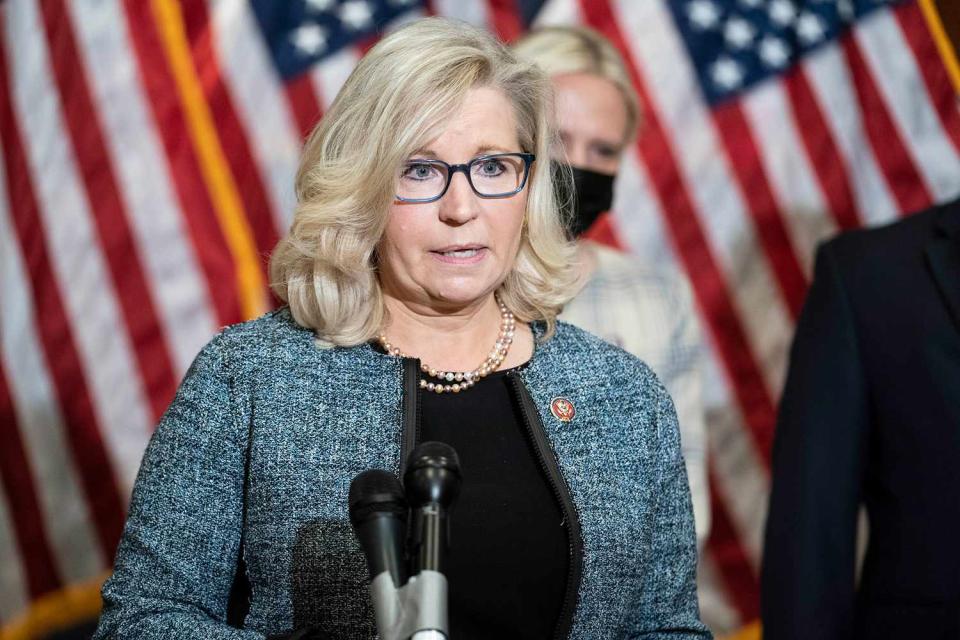
Sarah Silbiger/Getty Rep. Liz Cheney
Rep. Liz Cheney (Wyoming)
A Wyoming Republican with a conservative legacy (her father is former Vice President Dick Cheney), Rep. Liz Cheney has become one of the most outspoken adversaries of former President Trump. She's the vice chair of the House select committee investigating the Jan. 6 attack on the U.S. Capitol and has taken center stage during its public hearings this summer.
Of her role on the committee, Cheney said in July, "I believe this is the most important thing I've ever done professionally and maybe the most important thing I ever do."
Cheney has paid a steep political price for her insistent warnings about Trump and the fate of American Democracy. She was kicked out of Republican leadership and censured by her party, which backed pro-Trump primary challenger Harriet Hageman in Wyoming, where Trump won close to 70% of the vote in 2020.
Hageman defeated Cheney by more than 30 points on Aug. 16. In conceding the race, Cheney spoke of Republican President Abraham Lincoln as "the great and original champion of our party" who "was defeated in elections for the Senate and the House before he won the most important election of them all."
"Lincoln ultimately prevailed," Cheney told supporters. "He saved our union, and he defined our obligated as Americans for all of history."
She also vowed to "do whatever it takes to ensure that Donald Trump is never anywhere near the Oval Office."
The next morning, Cheney was asked about possible presidential aspirations. "That's a decision that I'm going to make in the coming months, and I'm not going to make any announcements here this morning — but it is something that I am thinking about," she said in a Today show interview.
She also acknowledged how much the GOP has changed in recent years to become a "cult of personality" and the work she considers necessary "get this party back to a place where we're embracing the values and the principles on which it was founded."
"The Republican party today is in very bad shape. And I think that we have a tremendous amount of work to do," Cheney said. "I think that it could take several election cycles, but the country has got to have a Republican party that's actually based on substance, based on principles."
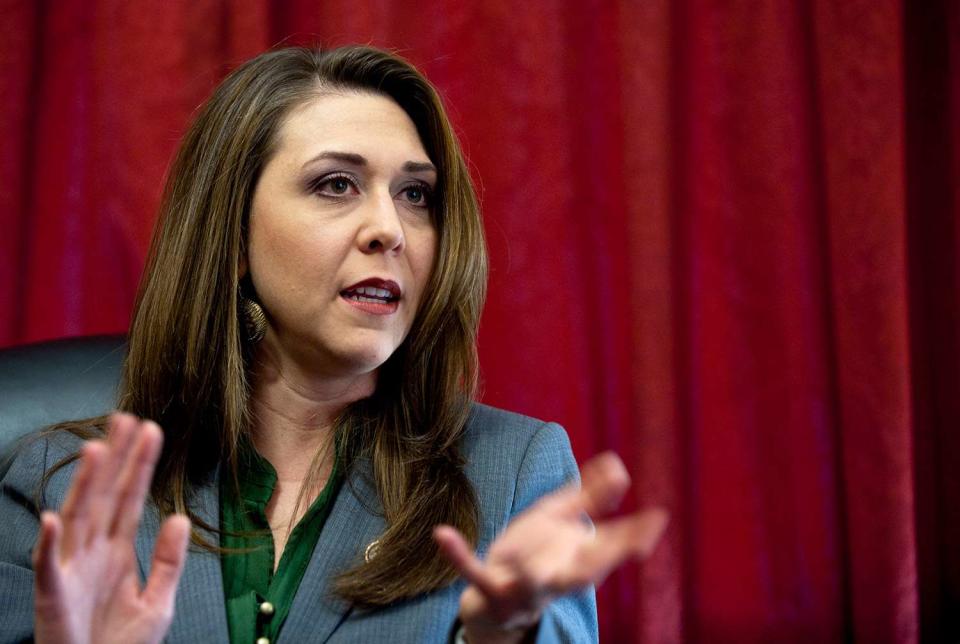
Getty Images
Rep. Jaime Herrera Beutler (Washington)
"I see that my own party will be best served when those among us choose truth. I believe President Trump acted against his oath of office, so I will vote to impeach him," Herrera Beutler said before casting her career-ending 2021 vote.
During impeachment proceedings, Herrera Beutler revealed that House Minority Leader Kevin McCarthy shared with her what Trump said when asked to call off the rioters on Jan. 6. "Well, Kevin, I guess these people are more upset about the election than you are," the then-president said, according to what Herrera Beutler heard from McCarthy. She was censured by her local Republican Party for her impeachment vote.
The congresswoman conceded her bid for reelection following the primary in August. Retired special forces officer Joe Kent, who was endorsed by Trump, became the GOP nominee, and lost his race to Democrat Marie Gluesenkamp Perez in one of the biggest upsets of the midterms — and one of the most damaging to Trump's reputation, as his push to oust Herrera Beutler appears to have single-handedly flipped a key House seat blue.

Getty Images
Rep. Peter Meijer (Michigan)
The Michigan Republican had been on the job for little more than a week when he contemplated a vote to impeach the president from his own party. He called the decision "career suicide before my career ever began" in an interview with The New Yorker.
In the Aug. 2 primary, Meijer lost his reelection bid after serving just one term in Congress. "I'm proud to have remained true to my principles, even when doing so came at a significant political cost," Meijer said after he conceded to his primary opponent, John Gibbs, a former Trump administration official who had the former president's support and who's embraced his "stolen election" narrative.
Gibbs was defeated on Tuesday by Democratic attorney Hillary Scholten, whom Meijer had proved capable of beating when he faced her in 2020. The seat is now blue, and Trump is getting the blame.
RELATED: The Biggest Midterms Week Surprises, Including the 'Red Wave' That Wasn't
Speaking of Jan. 6 a year after the attack, Meijer said, "We have to face it for what it was. We have to recognize the threat of political violence, and say that we should not be tolerating that. That was one of the reasons why I voted for impeachment, the fact that we cannot, in our political system, be playing around with such dangerous rhetoric and encouraging, spurring, inciting people to go and try to use force, use threats, use violence in order to achieve a political end."
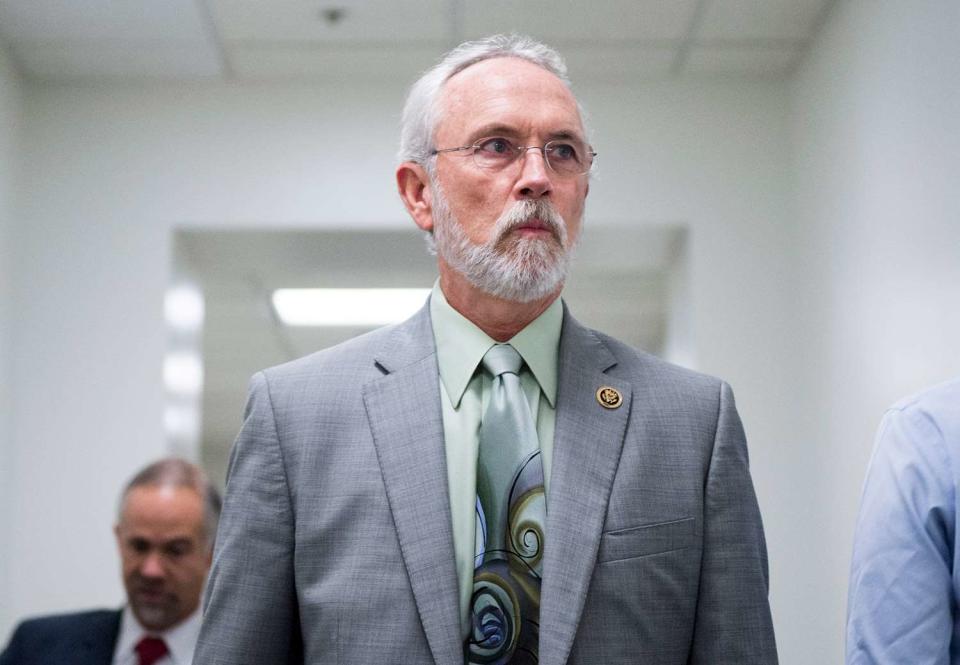
Getty Images
Rep. Dan Newhouse (Washington)
"Our country needed a leader, and President Trump failed to fulfill his oath of office," the Washington Republican said of his decision to impeach.
Newhouse was on the ballot in November's general election, soundly defeating leading Democrat Doug White in Washington's 4th Congressional District and securing another term in the House.
Trump's preferred candidate, Loren Culp, a 2020 Republican nominee for governor, was not a top-two candidate in the primary, and had not advanced to the general election.
"For those who disagree with me on this issue, I hope they will remember my lifelong support for conservative causes and values," Newhouse said after the impeachment.
RELATED: 2020 Election Deniers Win Key Republican Primaries in Arizona, Michigan and Missouri
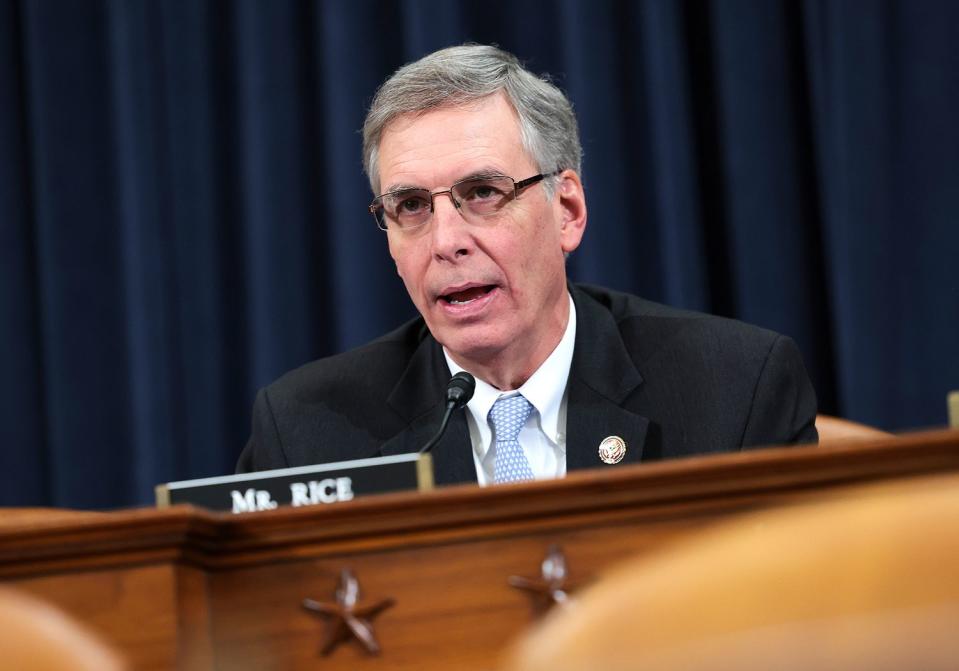
Kevin Dietsch/Getty Tom Rice
Rep. Tom Rice (South Carolina)
"I have backed this President through thick and thin for four years. I campaigned for him and voted for him twice. But this utter failure is inexcusable," Rice, a South Carolina Republican, said of his decision to vote for impeachment in 2021.
Despite his pre-impeachment support for the former president, which he touted on the campaign trail, voters chose Rice's opponent, Trump-endorsed state Rep. Russell Fry, in South Carolina's District 7 June primary.
It wasn't even close: Rice lost to Fry by 26 points. Fry went on to win the general election over his Democratic opponent, Daryl Scott.
"If we are going to have a scenario where the president can try to intimidate Congress into doing what he wants, well shoot, we might as well have a monarchy," Rice told NPR in February.
Trump called Rice a "coward who abandoned his constituents by caving to Nancy Pelosi and the Radical Left" and urged for him to be "thrown out of office ASAP." In this race, Trump got his way.
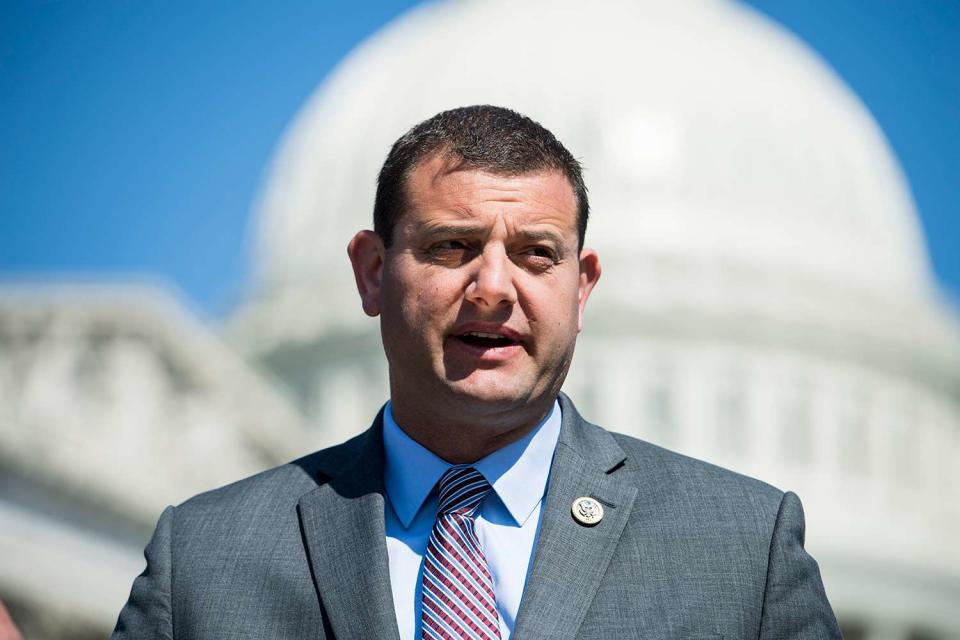
Getty Images
Rep. David Valadao
California, like Washington, has an open primary system, and Rep. Valadao was one of the two candidates to advance to the general election in November for the state's 22nd District. The other is Democrat Rudy Salas. Though there were two other Republicans vying for Valadao's seat, he was able to fend off the challengers.
Valadao hasn't felt the same backlash as other Republicans who voted to impeach the former president, and Trump did not endorse a candidate for the primary.
"President Trump was, without question, a driving force in the catastrophic events that took place on Jan. 6," Valadao said after his vote to impeach.
"His inciting rhetoric was un-American, abhorrent, and absolutely an impeachable offense. It's time to put country over politics," he also said.
Valadao's race has not yet been called by the Associated Press, but at the time of publishing, he was leading his opponent by five points, appearing in position to serve another term.
GOP Members Who Chose to Retire
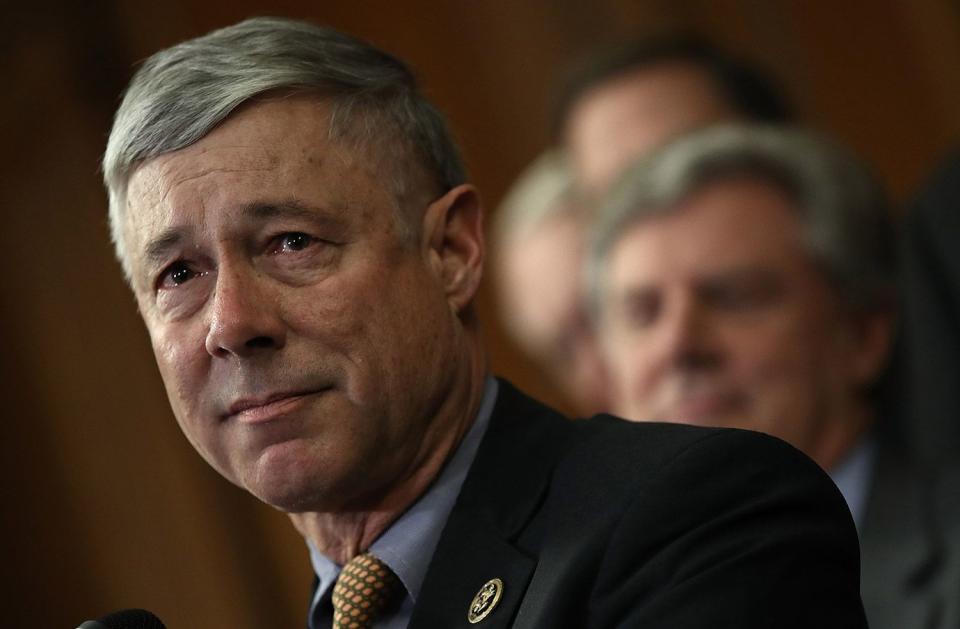
Getty Images
Rep. Fred Upton (Michigan)
The Michigan congressman announced in April that he won't seek reelection in 2022 after more than three decades in office, joining four others who previously made the same decision.
"As a former Boy Scout, I believe in leaving the campground better than one found it," Upton said, The Washington Post reported. "Even the best stories have a last chapter. This is it for me."
"UPTON QUITS! 4 down and 6 to go," Trump said in a statement at the time, according to USA Today. "Others losing badly, who's next?"
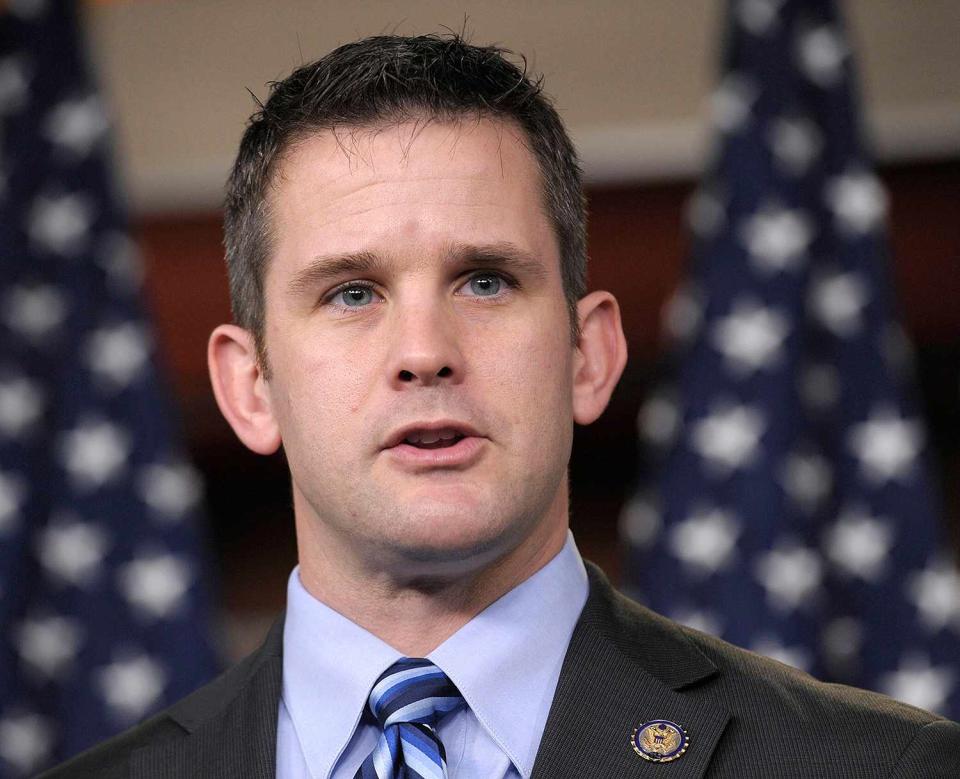
Susan Walsh/AP/Shutterstock Rep. Adam Kinzinger
Rep. Adam Kinzinger (Illinois)
"There is no doubt in my mind that the president of the United States broke his oath of office and incited this insurrection," the Illinois representative said of his impeachment vote.
By Oct. 2021, Kinzinger, a former Air National Guard pilot who served two tours in Iraq, announced he won't run for election in 2022 after six terms in Congress.
"My passion for this country has only grown," he said at the time. "My desire to make a difference is bigger than it's ever been. My disappointment in the leaders that don't lead is huge. The battlefield must be broader, and the truth needs to reach the American people across the whole country."
Kinzinger has become a high-profile Trump critic and openly shared the threats he's received for taking on the former president.
As one of two Republicans on the House committee investigating the Jan. 6 attack and efforts to overturn the 2020 presidential election, the congressman took center stage during its televised hearings over the summer.
In announcing his retirement, Kinzinger implied he has more to offer in American politics. "I want to make it clear," he said, "this isn't the end of my political future but the beginning."
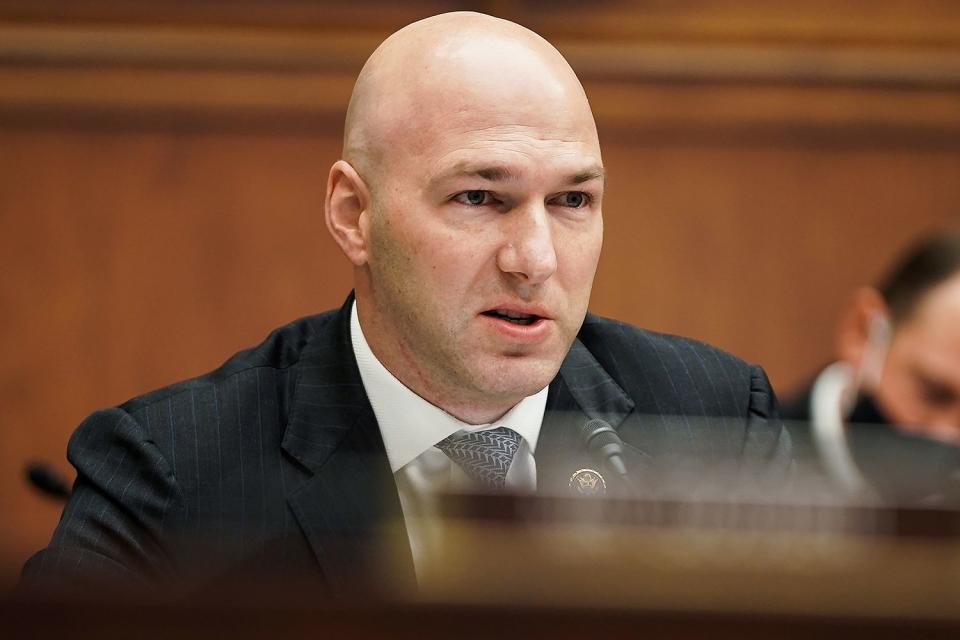
GREG NASH/POOL/AFP via Getty Images Anthony Gonzalez
Rep. Anthony Gonzalez (Ohio)
In September 2021, the Ohio congressman became the first of the 10 Republicans who voted for impeachment to announce his retirement rather than face a reelection fight in Trump's cross-hairs.
Gonzalez cited concerns for his family life — he has two small children — and the demands of being a member of Congress.
He also acknowledged feeling uneasy about the need for increased security since he voted for impeachment. When he was greeted at the Cleveland airport by two uniformed police officers after the vote, he called the experience "eye-opening."
"That's one of those moments where you say, 'Is this really what I want for my family when they travel, to have my wife and kids escorted through the airport?'" he said, according to The New York Times.
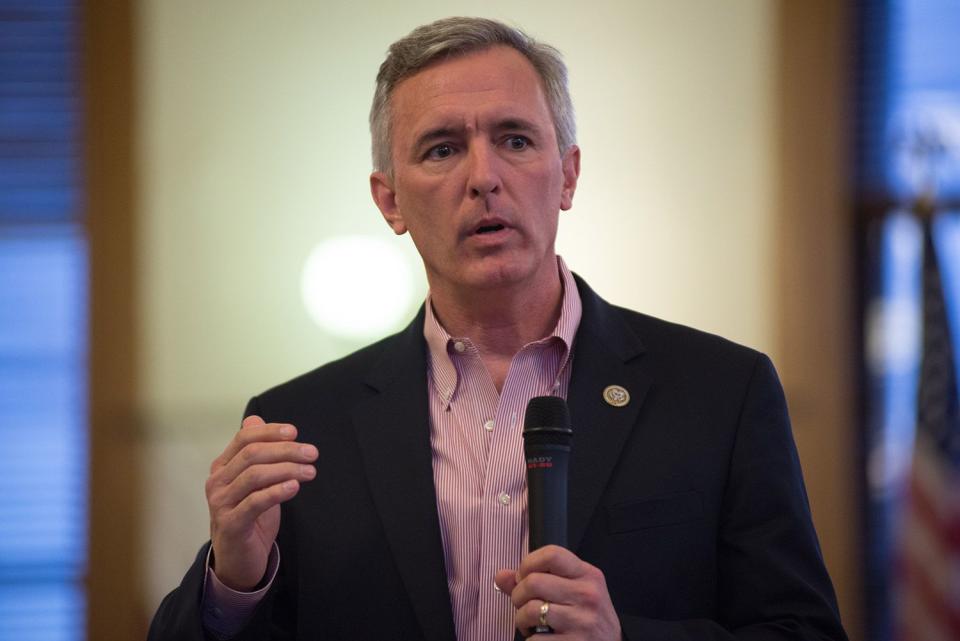
zach D Roberts/Getty Images John Katko
Rep. John Katko (New York)
The Syracuse Republican said his decision not to seek a fifth term in 2022 was made based on a desire to spend more time with family.
"Great news, another one bites the dust. Katko, from Upstate New York, is gone!" Trump said in a statement.
In a March interview, Katko expressed confidence that he would have won if he'd decided to run again, despite redistricting.
Never miss a story — sign up for PEOPLE's free daily newsletter to stay up-to-date on the best of what PEOPLE has to offer.
"I was quite certain, even with the redistricting that was done in New York state, that I had a path to victory," he said. "And I had a very good path to victory."
He added that former President Trump's call to get rid of all 10 Republicans who voted for impeachment factored into his decision "not at all."

